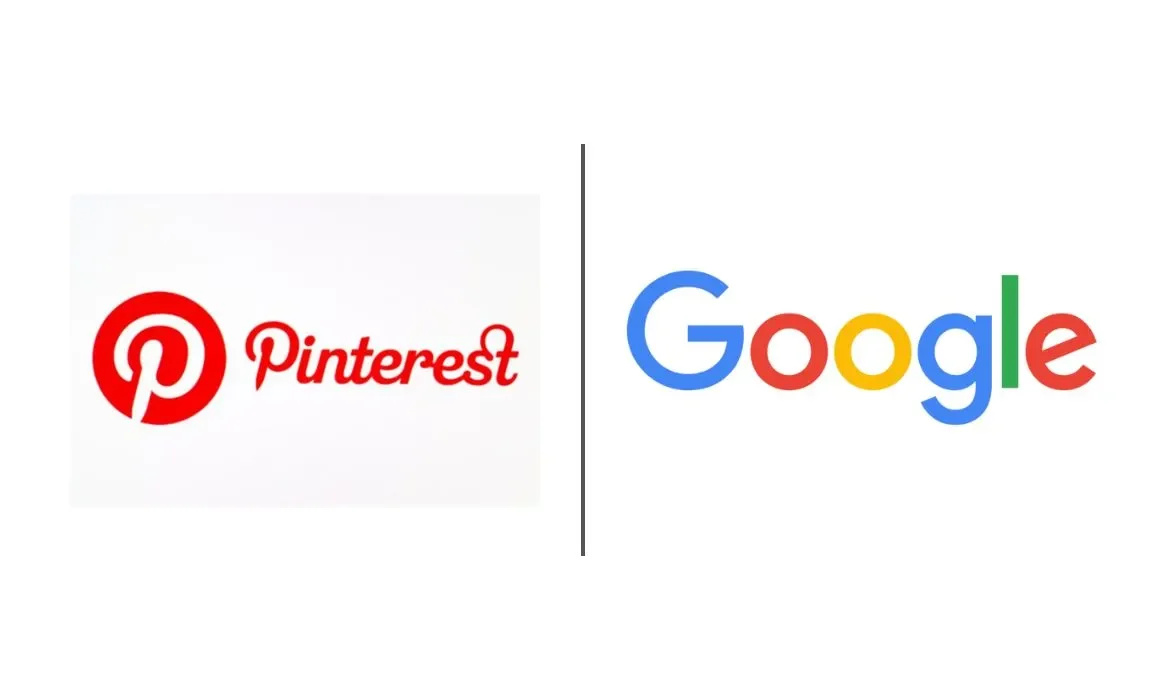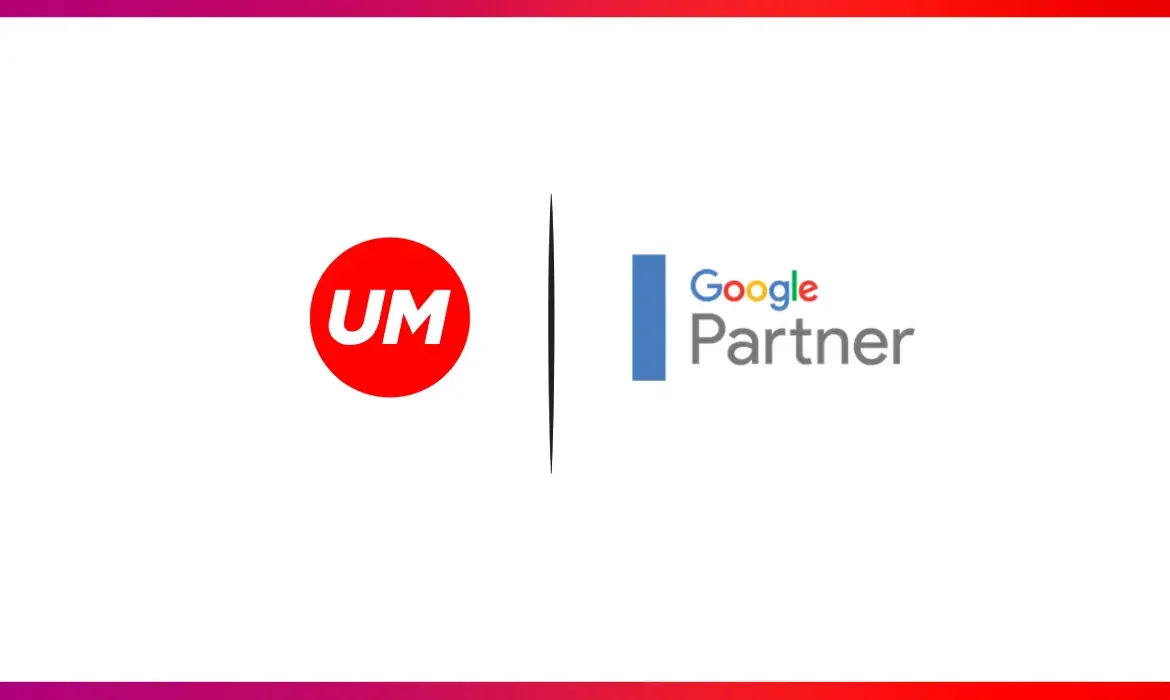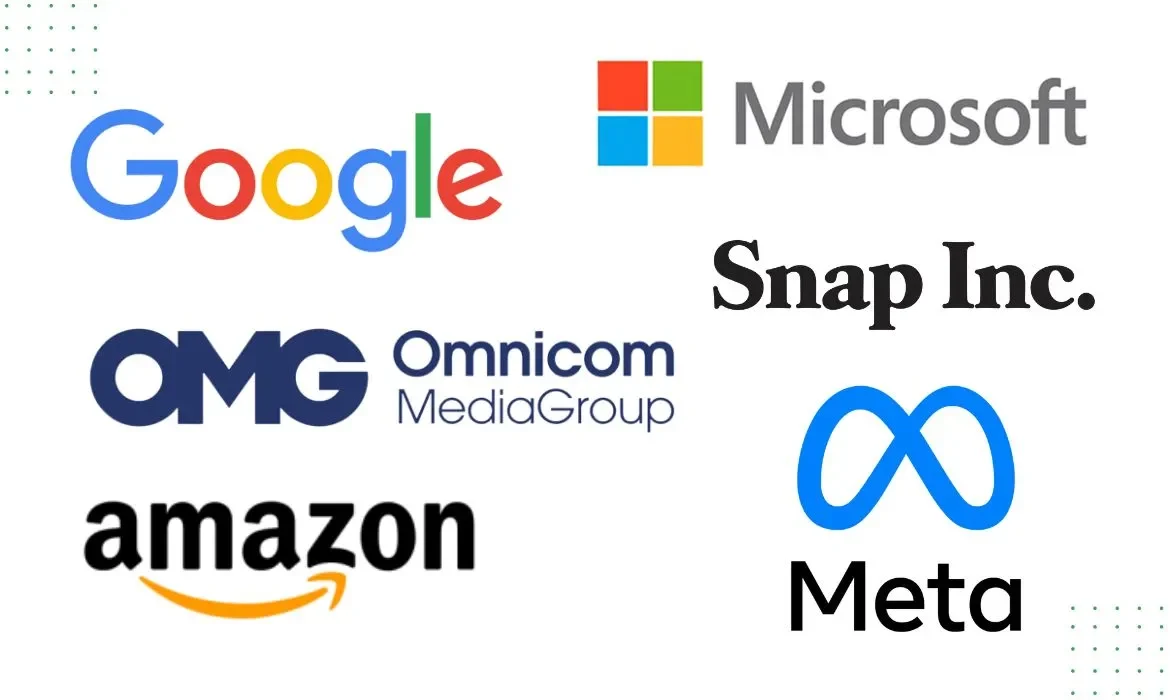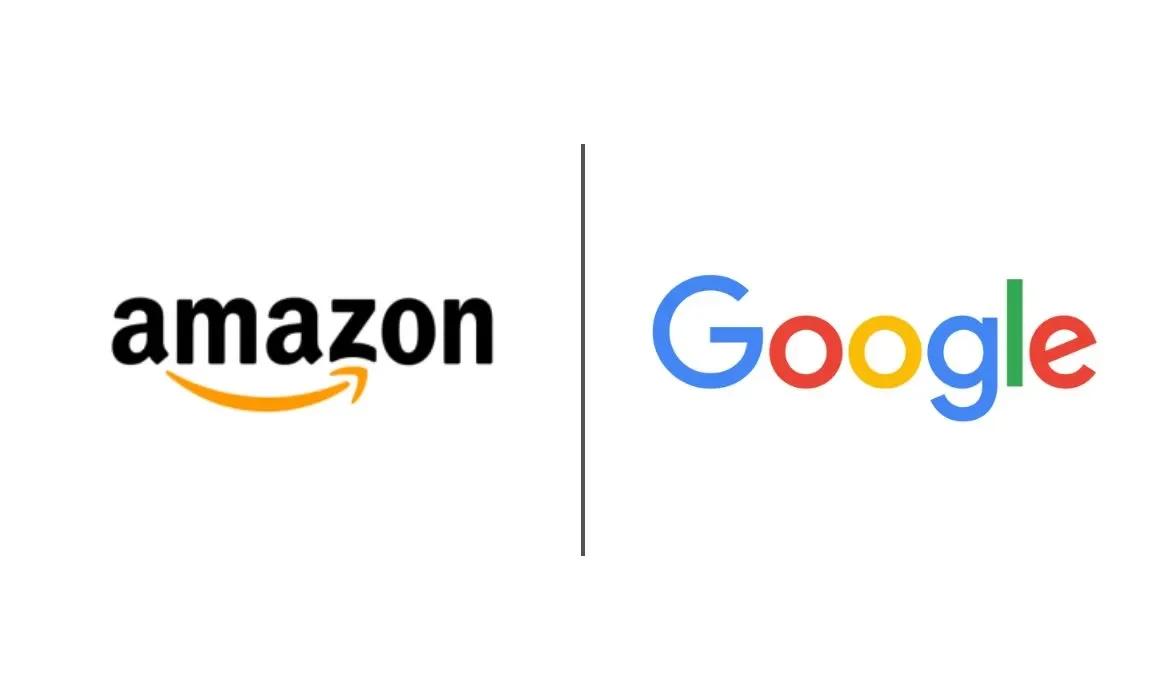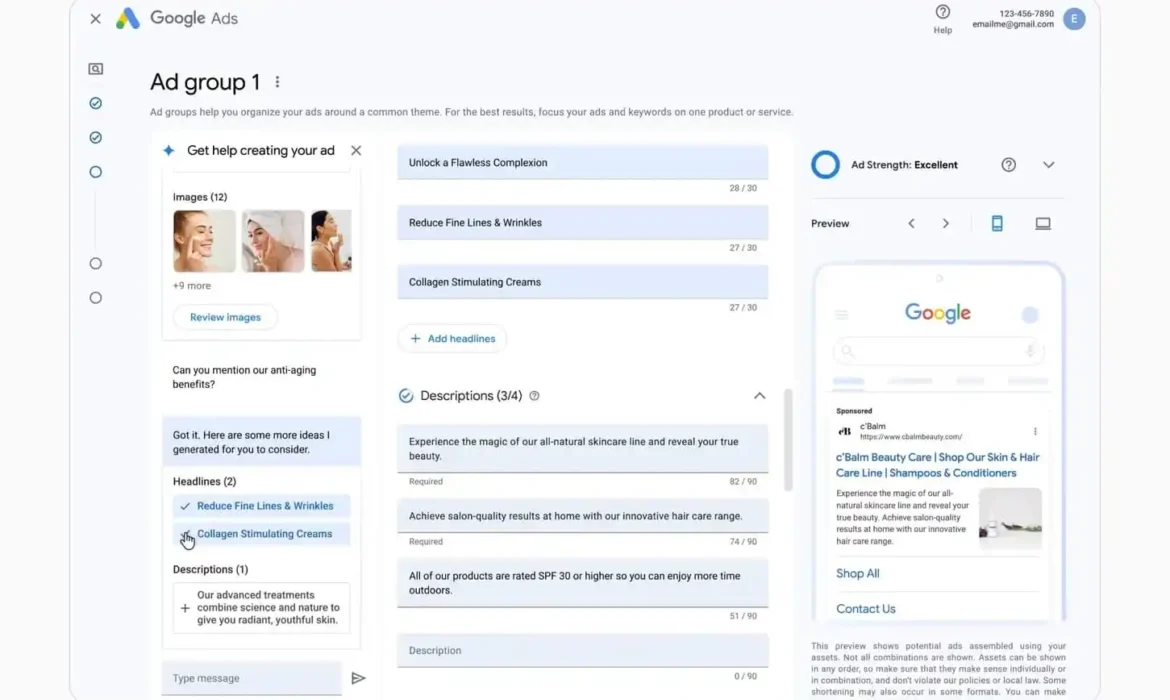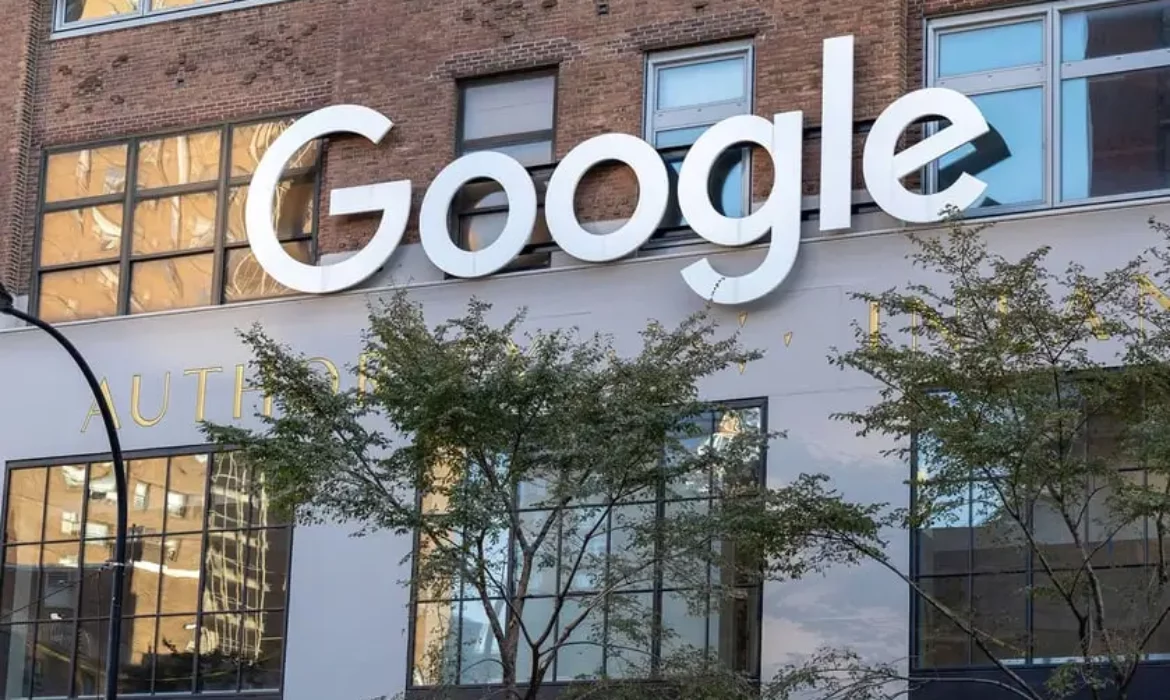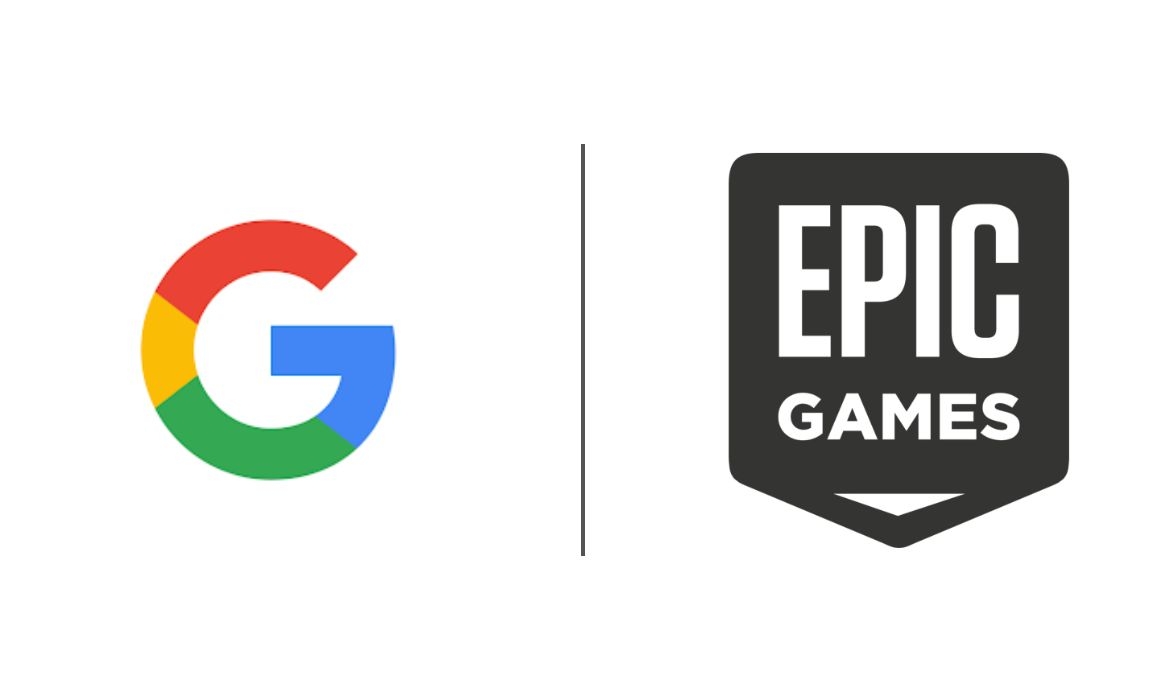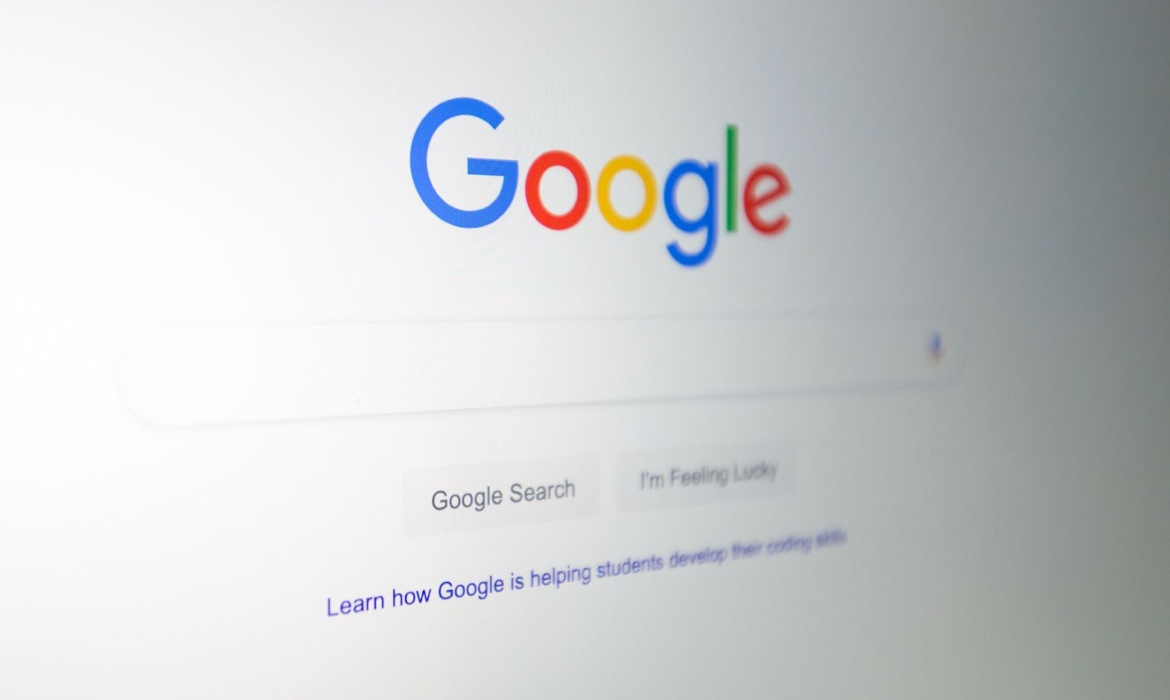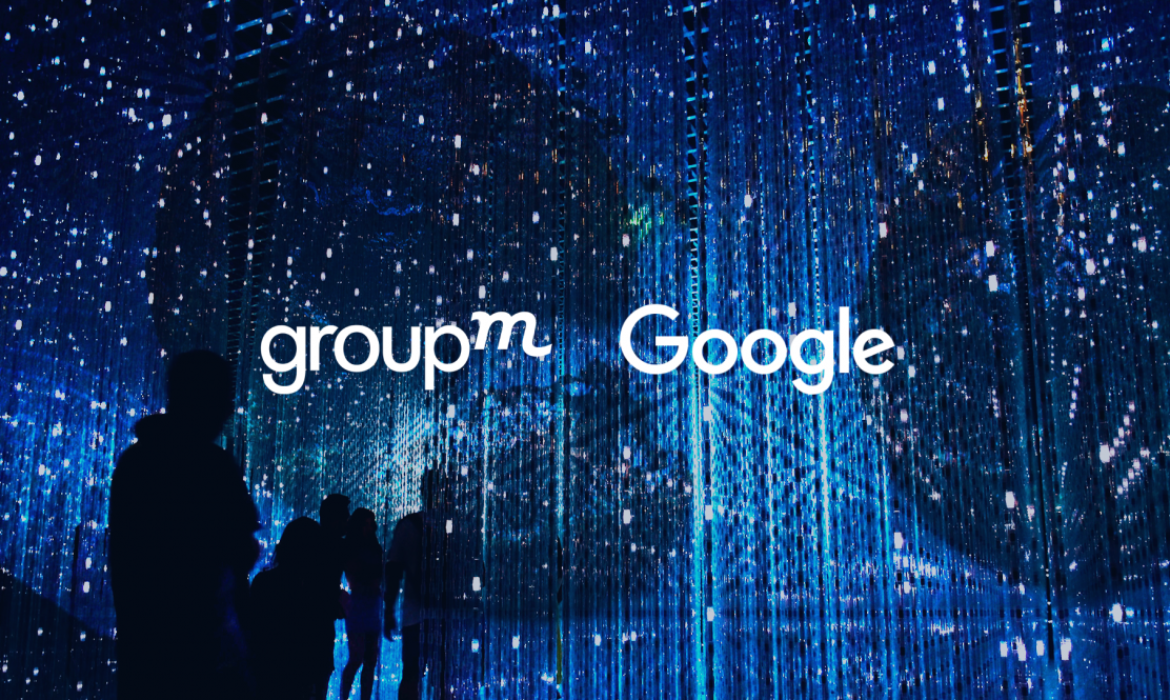Google and Pinterest Announced Ad Partnership for Third-Party Ad Integrations
Google and Pinterest have announced a new ad partnership. The partnership, which is intended to increase Google and Pinterest’s advertising revenue, follows the image-sharing service’s long-term arrangement with Amazon, which was made public last year. Google is now Pinterest’s second third-party ad partner. Through the partnership, adverts will be served on Pinterest through Google’s Ad Manager, encouraging users to finish their purchase on the platform when they come across a relevant ad.
Third-party ad integration partnership
The partnership gives advertisers using Google Ads the opportunity to reach a wider audience. Furthermore, it helps to interact with Pinterest’s active, high-value customer base. It potentially enhances conversions and raises return on investment (ROI).
The Google integration is anticipated to be phased in over several quarters, similar to the Amazon integration. The first rollout started a few weeks ago. According to reports, only 20% of Pinterest’s revenue comes from sales outside of the United States, even though 80% of its users are reportedly based abroad. Executives at Pinterest think that this new collaboration will close this gap and increase sales abroad.
Here’s what they said
As reported by Campaign U.K.,
Pinterest CEO Bill Ready said,
“This partnership will focus on monetising several of our currently un-monetised international markets by enabling ads to be served on Pinterest via Google’s Ad Manager. We went live a couple of weeks ago, and this is starting to ramp up. Third-party ad demand is scaling as we anticipated.”
Read More: Expedia and Netflix Collaborate for First-of-its-kind Global Advertising Campaign
UM MENAT Elevates Global Expansion for Clients Through Google’s International Growth Agency Program
Dubai, UAE – February 13, 2024 – UM MENAT has joined Google’s International Growth Agency Program (IGAP), an exclusive and invitation-only partnership program extended to Google’s top-tier agencies worldwide. This partnership solidifies UM’s commitment to scaling the region’s position on the global stage.
IGAP by Google will equip UM with exclusive tools, resources, and valuable data, empowering the agency to facilitate growth and support clients at various stages of global expansion. This encompasses assistance in identifying international growth prospects, developing effective go-to-market strategies, providing consultation on localization, payments, customer experience, logistics through Google and its partner network, and implementing international best practices to ensure performance parity with domestic markets.
Commenting on UM joining Google’s International Growth Program, Walid Stephan, Head of Agency Partners at Google MENA, said,
“We are very excited to have UM MENA completing the Google IGAP program. This equips them with key tools and insights that allow them to elevate the export strategy and new market expansion of their clients to a new level, opening up global opportunities.”
James Dutton, Regional Director – Digital & Head of Product at UM MENAT, added,
“We are experiencing an extraordinary moment in history. In a world marred by uncertainty, economic challenges, and increasing polarization, the Middle East stands out as a beacon of growth, development, and prosperity. Empowering our clients to expand into global markets is the next phase where we will change the game. Building on the significant success of our pilot global expansion clients, we look forward to extending our global expansion client portfolio alongside Google.”
ABOUT UM
UM is a global media agency committed to Futureproofing our clients’ businesses for the now and the next. We leverage the transformational power of rich business analytics and real-time intelligence to maximize growth and activate the full consumer journey across content and connections. Our consultative approach and agile model, rooted in diversity, equity and belonging, drive better business outcomes for brands.
As the leading global media network in IPG Mediabrands, UM operates in over 100 countries, with more than 5,000 people innovating on a roster of global clients including Emirates, Accenture, American Express, stc, General Mills, GoPro, Henkel, Johnson & Johnson, Levi Strauss & Co, Mattel and Upfield.
Deciphering Big Tech Giants’ Quarterly Results: Here’s What They Say!
The Big Techs recently disclosed their fourth-quarter results. For those who are interested in the industry, these are a few key findings and insights from the quarterly reports.
![]()
ALPHABET
Alphabet Inc., the parent company of Google, exceeded Wall Street forecasts with its fourth-quarterly earnings report. Ad sales, however, failed to expand quickly enough to keep up with experts’ predictions. YouTube, which has been contributing to increased growth, came up barely short of projections. With over 2 billion monthly users and an average of 70 billion views per day, YouTube Shorts continues to be a top priority for Google.
The cloud division, which was losing money for years while it attempted to compete with Microsoft Azure and Amazon Web Services, is where the company makes its money. Google Cloud continued to be a growth engine in the fourth quarter, expanding by 26%. The primary driver of revenue growth continues to be search. While brand and direct response advertising drove YouTube advertising, growth in retail was the main driver of Google Search and other forms of advertising revenue.
By the numbers
- Revenue reported was $86.31 billion, up 13.5%.
- Google Search and other advertising revenues rose to $48 billion, up 13% Yo-Y.
- Google cloud computing revenue was $9.19 billion up 26% Yo-Y.
- Advertising revenues reported were $65.52.
- YouTube advertising reported $9.2 billion, up 16% Yo-Y.
- Network advertising revenue was $8.3 billion, down 2%.
- Traffic acquisition costs were $13.9 billion.
Google is beginning to provide generative AI to an increasing number of companies to assist them in creating more effective campaigns and advertisements. Google unveiled Gemini, a large language model that it claims to be its most powerful AI model, in December. The business intends to license Gemini to users via Google Cloud so they can utilize it in their apps. Additionally, Google plans to test the usage of Gemini in Search, where it will speed up consumers’ Search Generative Experience (SGE).
Sundar Pichai, CEO, said in the conference call,
We are pleased with the ongoing strength in Search and the growing contribution from YouTube and Cloud. Each of these is already benefiting from our AI investments and innovation. As we enter the Gemini era, the best is yet to come.
Ruth Porat, President and Chief Investment Officer, CFO said,
We ended 2023 with very strong fourth quarter financial results, with Q4 consolidated revenues of $86 billion, up 13% year over year. We remain committed to our work to durably re-engineer our cost base as we invest to support our growth opportunities.
Read More: Google Integrates Gemini AI Into Search Ads Platform
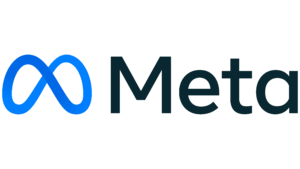
META
Meta exceeded Wall Street expectations and had a positive fourth quarter. The positive outcomes show that digital advertising has recovered well from its 2022 decline. It was a significant year for both the business and the community. According to Meta’s estimation, over 3.1 billion individuals use at least one of the Meta applications daily. The already enormous social media company keeps on adding new users across all platforms.
Overall, Meta’s Q4 revenue increased by 25% over the previous year. Threads, the business’s Twitter-like social app that launched in July 2023, now has over 130 million monthly active users, according to the company. As is usual, almost all of Meta’s revenue came from sales of digital advertising. Chinese retailers have increased their spending to reach customers worldwide, which has contributed to Meta’s financial turnaround during the past year. They have been heavily investing in Facebook and Instagram ads.
By the numbers
- Revenue was $40.11 billion, an increase of 25% Yo-Y, and $134.90 billion, an increase of 16% Yo-Y for the full year.
- Facebook DAUs were 2.11 billion on average, an increase of 6% Yo-Y.
- Facebook MAUs were 3.07 billion, an increase of 3% Yo-Y.
- Family DAPs were 3.19 billion on average, an increase of 8% Yo-Y.
- Family MAPs were 3.98 billion, an increase of 6% Yo-Y.
- Ad Impressions delivered across all Meta apps increased by 21% Y-o-Y and the average price per ad increased by 2% Yo-Y.
Strong sales of the company’s Quest device during the holiday season drove record sales of $1.1 billion for the metaverse-focused Reality Labs division. Additionally, Zuckerberg stated that the ad business, which is expanding more quickly than Google, has benefited from advancements in artificial intelligence. By the end of the year, Meta plans to completely launch Meta AI assistant and further AI chat experiences in the United States using generative AI.
Meta Chief Executive Mark Zuckerberg said in a news release,
We had a good quarter as our community and business continue to grow. We’ve made a lot of progress on our vision for advancing AI and the metaverse.
Susan Li, CFO, stated that Meta’s big areas of focus in 2024 will be working towards the launch of Llama 3, expanding the usefulness of Meta AI assistant, and progressing on our AI studio roadmap to make it easier for anyone to create an AI.
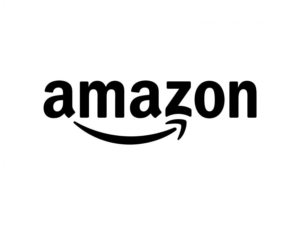
AMAZON
For the fourth quarter of 2023, Amazon reported better-than-expected revenues, exceeding sales forecasts thanks to new generative AI capabilities in its cloud and e-commerce businesses, which drove strong growth throughout the Christmas season. The e-commerce behemoth had a great holiday season. Over 1 billion items were bought on the site in the course of the company’s 11-day Black Friday and Cyber Monday sales. Additionally, the events helped bring in new Prime members and save consumers billions of dollars.
With 26% Yo-Y growth in worldwide advertising, Amazon had a great result. Because machine learning has improved ad relevancy, sponsored products have been the main driver of advertising strength. The shift in customer attention towards encouraging innovation and introducing new workloads to the cloud was attributed to the increase in AWS revenues.
By the numbers
- Revenue was reported at $169.9 billion versus expectations of $166.2 billion, up 13.9% Yo-Y.
- AWS Revenue 13% increase in sales over the prior year to a total of $24.4 billion.
- Advertising sales of $14.7 billion.
- Subscription services were up 13%, reporting $10.4 billion in revenue.
Amazon has launched Rufus, a new AI shopping assistant trained in Amazon’s product catalog and other web-based information. The tool, driven by generative AI, may provide product recommendations and respond to queries from users of the Amazon mobile app. The corporation believes that advancements in AI might bring in tens of billions of dollars for its cloud computing division.
Chief Executive Andy Jassy said in Amazon’s press release
This Q4 was a record-breaking holiday shopping season and closed out a robust 2023 for Amazon. While we made meaningful revenue, operating income, and free cash flow progress, what we’re most pleased with is the continued invention and customer experience improvements across our businesses.
Amazon’s Chief Financial Officer Brian Olsavsky added,
We’re coming off a period where we’ve done a lot of hiring. There’s a general feeling in most teams that we’re trying to hold the line on headcount.
Read More: Amazon and Reach Partner for Targeted Ads Ahead of Third-Party Cookie Phase-Out
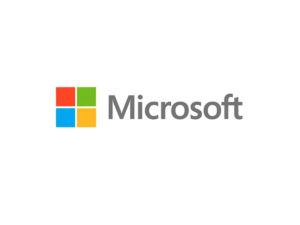
MICROSOFT
Microsoft had a record-breaking quarter, mostly due to Microsoft Cloud’s ongoing growth. Strong executions in the commercial areas and device advancements were credited for the anticipated growth in its quarterly results. The robust demand for Microsoft Cloud offerings, particularly AI services, led to enhancements in Azure, which in turn drove revenue growth.
On October 13, 2023, Microsoft completed the acquisition of Activision Blizzard. With the acquisition, the business expanded its player base by hundreds of millions. It broke previous records for MAUs on Xbox, PC, and mobile devices with over 200 million MAUs in a single month. The business has been integrating AI into every aspect of the IT stack, bringing in new clients and fostering increased efficiency. Additionally, the business reported increased revenue from Windows OEM sales and improved performance in consumer markets.
By the numbers
- Revenue recorded was $62.0 billion, an increase of 18%.
- Intelligent Cloud unit $25.9 billion, increasing 20% ahead of expectations.
- Azure revenues increased by 30%.
- LinkedIn’s revenues increased by 9%.
- Microsoft Cloud Revenue was $33 billion, up 24%.
- Search and news advertising revenue excluding traffic acquisition costs increased by 7%
AI is helping to drive revenue in the Azure consumption business. Over the past year, Microsoft, Amazon, and Google have all invested billions of dollars in artificial intelligence (AI) in an attempt to overtake one another as the leading providers of AI software.
Satya Nadella, chairman and chief executive officer of Microsoft said,
We’ve moved from talking about AI to applying AI at scale. By infusing AI across every layer of our tech stack, we’re winning new customers and helping drive new benefits and productivity gains across every sector.
Amy Hood, Chief Financial Officer added,
While it’s early days for Microsoft 365 Copilot, we’re excited about the adoption to date and continue to expect revenue to grow over time.
Read More: Vodafone and Microsoft Sign 10-year Strategic Partnership for IoT, Cloud, AI and More
APPLE
In its first-quarterly report, Apple exceeded analysts’ projections for both revenue and profits, but it revealed a 13% drop in sales in China, one of its most significant regions. The tech giant surpassed 2.2 billion active devices, setting a new milestone for its installed base. Apple attributes this to extremely high levels of customer satisfaction and unmatched customer loyalty.
According to projections, Mac sales increased by less than 1% throughout the quarter. Nonetheless, this is a noteworthy comeback for the product line, which had an annual decline of about 34% in the September quarter. iPad sales are still declining. For the first time in iPad history, Apple did not introduce a new model in 2023.
By the numbers
- Revenue was $119.6 billion, up 2% Yo-Y.
- iPhone Revenue was $69.70 billion 6% up.
- Mac $7.78 billion 1% up Yo-Y.
- iPad $7.02 billion down 25% Yo-Y.
- Wearables, home, and accessories revenue was $11.95 billion, down 11%.
- Service Revenues $23.13 billion up 11% Yo-Y
Additionally, Apple unveiled the Apple Vision Pro, their most sophisticated personal electronics gadget to date. Customers in the United States will be able to purchase it via Apple stores; later in the year, it will also be available in other countries. It is considered a groundbreaking gadget that is years ahead of anything else and is based on decades of Apple ingenuity. Additionally, the company announced that customers may select any Apple Watch model that is carbon neutral for the first time.
Tim Cook, Apple’s CEO said in the conference call,
Today Apple is reporting revenue growth for the December quarter fueled by iPhone sales, and an all-time revenue record in Services. We are pleased to announce that our installed base of active devices has now surpassed 2.2 billion, reaching an all-time high across all products and geographic segments. And as customers begin to experience the incredible Apple Vision Pro tomorrow, we are committed as ever to the pursuit of groundbreaking innovation — in line with our values and on behalf of our customers.

SNAP INC
Snap Inc. released a forecast that was slightly below Wall Street expectations. The company has now recorded six consecutive quarters of single-digit growth or revenue contraction. Snap Inc. struggled to recover from the downturn in the digital ad sector.
Snap Inc. has announced a new publisher partnership with Spotify in the United States, which will bring short-form highlights from Spotify’s podcasts to Spotlight and Stories. Additionally, the social media giant revealed new AI-powered tools for Snapchat+ users, enabling them to edit and share Snaps as well as create and send AI-generated images in response to text prompts.
By the numbers
- Revenue was $1,361 million, an increase of 5% Yo-Y.
- DAUs were 414 million, an increase of 39 million or 10% Yo-Y.
- MAUs increased 8% Yo-Y and surpassed 800 million in Q4.
- Subscriptions for Snapchat+ have reached over 7 million
Snapchat made a large investment in its augmented reality system. On average, almost 300 million Snapchat users use its augmented reality feature every day. Additionally, it has invested in automation and technology, used generative models, and optimized the ML Lens generation workflow.
Evan Spiegel, CEO said in the announcement,
2023 was a pivotal year for Snap, as we transformed our advertising business and continued to expand our global community, reaching 414 million daily active users. Snapchat enhances relationships with friends, family, and the world, and this unique value proposition has provided a strong foundation to build our business for long-term growth.
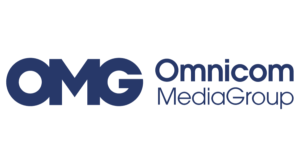
OMNICOM MEDIA GROUP
Omnicom exceeded analyst forecasts with impressive Q4 and full-year 2023 results. The growth in advertising and media during the quarter was driven once again by the performance of global media, with softer results from Omnicom’s advertising agencies serving as a partial offset.
Additionally, Omnicom completed the acquisition of Flywheel Digital, which will contribute to the introduction of scaled capabilities in the retail, media, and digital commerce sectors—the fastest-growing areas of the business. Furthermore, Omnicom disclosed that it has partnered with Getty Images as a first mover, giving them early access to a new generative artificial intelligence tool.
By the numbers
- Revenue reported increased $192.7 million or 5% organically, to $4,060.9 million.
- Advertising and media were up 9.3%.
- Public Relations was 2.9% down.
- Third-party service costs increased by $97.5 million or 12.4% to $884 million
Omnicom has reportedly spent tens of millions of dollars developing artificial intelligence over the past ten years, according to CEO John Wren. With the recent June 2023 launch of Omni Assist, a generative AI-powered virtual assistant that organizes, carries out, and produces advertising campaigns through cooperation with Microsoft, Omnicom became the first agency holding company to get access to the most recent Open AI GPT models.
John Wren, Chairman and Chief Executive Officer of Omnicom commented,
Omnicom finished 2023 with 4.4% organic revenue growth in the fourth quarter and 4.1% for the year. Looking out to full year 2024, we are set up well with solid fundamentals, tremendous opportunities in digital commerce and retail media from our Flywheel acquisition, and momentum in new business wins. Our accelerated investments in analytics and AI will enhance our ability to drive the best outcomes for our clients, while shareholders remain supported by our profitable operations and balanced deployment of capital through dividends, acquisitions, and share repurchases.
Read More: Decoding Big Tech Giants Quarterly Results: Insights Await!
Amazon and Reach Partner for Targeted Ads Ahead of Third-Party Cookie Phase-Out
Amazon has signed a historic contract with Reach, the UK’s largest publisher, to access customer data for targeted advertising. The collaboration occurs as the media landscape struggles to respond to Google’s move to remove tracking cookies from its browser. Reach will share “contextual” first-party data with Amazon under the terms of the agreement, including details about the articles users are viewing. Amazon will then make use of this information to improve targeted ads on the websites of U.K. publishers, giving advertisers more effective and relevant advertising options.
The agreement benefits in ad data for targeted ads
The agreement is a reaction to Google’s plans to phase out third-party cookies later this year. It is among the first of its kind in Europe. Google plans to turn off all third-party cookies by the end of the year, matching Apple’s similar action to prohibit them in Safari. Its goal is to compensate for the disappearance of cookies, which monitor users’ online activities and gather data about them to better target advertisements. However, the agreement’s financial details were kept secret. Reach announced that it would collaborate with Amazon to share first-party data that is “contextual,” such as what articles users are viewing, with the American tech company utilizing the data to offer more specialized advertising on the U.K. publisher’s sites.
Beyond third-party cookies for targeted ads
This deal inspires other ways to reach high-value consumers online as advertisers look beyond third-party cookies for targeted advertising. To make sure that advertisements appear next to content that users are interested in, Reach intends to make use of Mantis. It is a brand safety and contextual advertising tool for publishers. By working together, Amazon can more effectively target audiences with relevant advertising in Reach’s magazines, including the Mirror, Daily Star, and OK! Magazine.
Read More: Amazon Prime Video Estimated to Generate $1B From Ad-Supported Tier in Debut Year
U.K.’s CMA raises safety concerns
While Reach and Amazon were announcing their partnership, the U.K. Competition and Market Authority (CMA) sent out a statement stating Google cannot move forward with third-party deprecation. The CMA raised issues that might cause Google’s third-party cookies phase-out to be delayed. In its most recent report on Google’s Privacy Sandbox, the tech giant was found to have complied with commitments. However, there are still several issues that need to be resolved before third-party cookies are removed from Chrome. If Google doesn’t take further action to address the concerns expressed about the proposed changes to the Privacy Sandbox, it won’t be able to remove third-party cookies from Chrome in the second half of 2024, as it is currently scheduled, at least not in the U.K.
Demands laid out by CMA
Before the removal of third-party cookies, the CMA laid out several demands for Google. However, the regulator stated that this does not preclude Google from moving forward with its plans. In a report outlining its ongoing concerns about Google’s Privacy Sandbox:
- The CMA states that Google might keep profiting from user activity data while preventing rivals from accessing the same information.
- Google’s ad tech services may benefit from its ability to manage which of its competitors’ ad tech companies are listed here.
- It is possible that publishers and advertisers won’t be as good at spotting fraud.
The CMA is collaborating with Google to find solutions to these problems. By the end of April, it will provide an update on each engine’s development in its upcoming quarterly report.
Accessing customer data for targeted ads
Other media companies are also considering deals involving customer data. A growing number of publishers are experimenting with paywalls and registration pages. However, it requires users to provide first-party information, like email addresses and login credentials. Reach is already working to collect additional reader data of this kind.
Read More: Google’s Third-Party Cookies Deprecation Rolls Out Today
Google Integrates Gemini AI Into Search Ads Platform
As the consumer search experience changes, generative AI can help advertisers by improving ad effectiveness and expediting the creation of campaigns. Google has incorporated its latest AI model – Gemini – into the Search Ads platform to enhance advertising efficiency. Early Ad Strength scores, which gauge the relevance, caliber, and diversity of ad copy, have increased as a result of advertisers creating more effective search campaigns with less work. The goal of the integration is to facilitate the creation of ad campaigns and improve the way that advertisements relate to online searches as they change.
Enhancing search engine marketing with Gemini-powered chat in search ads
In the upcoming months, Google Ads will join the list of core products that will support Gemini, the company’s largest and most powerful AI model. To improve its advertising solutions, the tech giant is now testing Gemini. The conversational experience is presently powered by Gemini. English-language advertisers in the United States and the United Kingdom can now fully access the conversational experience in Google AdWords through beta access. Over the coming weeks, it will be made available to all English-language advertisers worldwide. In the coming months, Google will be adding more languages.
Through a chat-based interface, the conversational experience workflow is intended to assist in the development of search campaigns. It blends knowledge with Google AI. With its Gemini AI model, the company has introduced a conversational experience in Google Ads that runs on servers in data centers as well as mobile devices. Advertisers can create relevant ad content with a conversational experience. Advertisers have expressed that it can be difficult to produce captivating images that boost performance as search becomes more visual.
Read More: Google’s Third-Party Cookies Deprecation Rolls Out Today
What are the advantages for advertisers?
More advertisers now have access to a feature that may speed up and simplify the process of creating search campaigns, giving them more time to concentrate on other critical activities necessary to achieve favorable campaign results. A new chat-based feature in Google Ads is called the Conversational Experience. Generating text and assets more quickly, it facilitates optimization and speeds up the creation of search campaigns by combining knowledge with Google AI.
How does it operate?
Conversational experience can be helpful.
- Developing fresh search ad headlines and descriptions
- Coming up with pertinent keywords
- Proposed pictures
- Proposed links to websites
Advertisers only need to enter their websites to create these assets; Google AI will then create relevant ad content, including headlines, descriptions, images, and keywords. The selection of elements for their campaigns is entirely up to advertisers. They can also use the chat feature to tweak and modify the content that has been generated. All generative AI-created photos in Google Ads, including conversational images, will have an invisible SynthID watermark and open standard metadata.
Generative AI in search ads
Using generative AI and images from landing pages, Google has designed the conversational experience to suggest images specific to a campaign. This allows advertisers to approve all campaign assets—including images—before the campaign’s launch. Ads for small businesses that use Google AdWords’ conversational experience have a 42% higher chance of publishing search campaigns with “Good” or “Excellent” Ad Strength. Overall, advertisers ranging from “Poor” to “Excellent” see an average 12% increase in conversions.
Generative AI is expected to improve 84% of Google Search queries. It will result in an annual impact on ad revenue of over $40 billion. According to estimates, the industries most affected by technology are healthcare, e-commerce, and B2B technology.
Adopting a brave and conscientious AI strategy
Google is as excited about AI’s potential to create value for advertisers and customers alike as the industry is. As AI keeps developing quickly, new opportunities and use cases appear frequently. Google is still dedicated to creating and implementing this innovative technology responsibly. They will keep investigating the potential of artificial intelligence.
Here’s what they said
Tom Foster, Paid Search Manager at Page1 said in the blog
I found the conversational experience very easy to use. It helped me create even more high-quality ads with ‘Good’ or ‘Excellent’ Ad Strength, which has further improved the performance of my campaigns.
Read More: Google Cloud Introduces New Generative AI Tools for Retailers
Google Reaches $5 Billion Class-Action Privacy Lawsuit Settlement
Google has reached a settlement to resolve a $5 billion class-action privacy lawsuit. It claimed the tech giant improperly tracked users’ personal information. It did so when it used the incognito mode of its Chrome browser and other similar “private” modes in other browsers to monitor their online activities. In 2020, a lawsuit was filed alleging that Google had deceived users into thinking that using Incognito mode would prevent it from tracking their online activities. The lawsuit claimed that despite users using ostensibly “private” browsing, Google’s advertising technologies and third-party websites that used Google Analytics or Google Ad Manager kept track of users’ site visits and activities, sending the data back to Google servers.
The proposed trial
A trial in the proposed class action was set for February 5, 2024. However, US district judge Yvonne Gonzalez Rogers in Oakland, California postponed it after Google and consumer attorneys announced they had reached a preliminary settlement in the lawsuit, which sought US$5 billion in damages. However, internal Google emails revealed in the lawsuit showed that the search engine giant was tracking users. They were especially the ones who were using incognito mode to measure web traffic and sell ads.
Read More: Publicis Media, UK AOP To Test Privacy-Enhancing Technology (PETs)
Google’s class-action privacy lawsuit
The plaintiffs had claimed that even when they switched Chrome and other browsers to “private” browsing mode, Google’s analytics, cookies, and apps allowed the Alphabet division to monitor their online activities. Additionally, the plaintiffs claimed that Google’s actions produced an “unaccountable trove of information” about people who believed they had taken privacy-protecting measures. It included everything from harmless information about friends, favorite foods, shopping routes, and pastimes to possibly embarrassing details. The plaintiffs’ attorneys requested at least $5,000 for each user. This would have cost at least $5 billion. However, the settlement will probably not come close to that amount. Furthermore, the parties did not provide a sum for their preliminary settlement.
Google has reached a settlement
The settlement was reached only a few weeks after Google’s request for a judge to decide the case was denied. Next year will see the start of a jury trial. Google was accused in the lawsuit of violating users’ privacy by “intentionally deceiving them with the incognito option.” It was filed in a Californian court. According to the initial complaint, Google and its staff members were granted the “ability to discover personal information about people’s lives, passions, and online activities.” By February 24, 2024, a formal settlement is anticipated for court approval. Class action lawsuits have emerged as the primary means of challenging large tech companies on data privacy issues. This is because the US does not have a comprehensive law governing the handling of personal data.
Read More: IAB Tech Lab Launches Two Working Groups for AI and Privacy Sandbox
Epic Games Prevails in the Antitrust Trial Against Google
Google’s problems remain unchanged since a US jury found that the company is monopolizing the Play Store. Video game developer Epic Games, best known for the game Fortnite, has won an antitrust trial against Google. The win could have a big impact on the app store economy. The decision was on the grounds that the tech giant was establishing an unlawful monopoly through its Play store and billing service. Three hours of deliberation followed a four-week trial that focused on a lucrative payment system within the Google Play Store before a unanimous decision was reached. The store serves as the primary location for hundreds of millions of users worldwide to download and install apps compatible with smartphones powered by Google’s Android software.
Epic Games win the antitrust trial
Three years ago, Epic Games sued Google, claiming that the internet search giant had been abusing its position to keep its Play Store free from rivals. In this way, it was safeguarding a billion-dollar profit margin. The gaming industry has traditionally seen game developers submit to the power of app stores. With this victory, the industry marks a turning point. The fact that Epic Games’ lawsuit against Apple was dismissed two years ago makes it even more noteworthy. Tim Sweeney, the CEO of Epic Games, stated in court that his company could save up to billions of dollars if they didn’t have to pay Google. Though the fines for the Google case have not yet been determined, Epic Games did not submit any financial claims.
What was the Google v Epic Games antitrust trial?
Video game developer Epic Games claimed Google Play Store Antitrust Litigation was charging app developers 30% more for in-app purchases. With this, Google’s Play Store was essentially eliminating all competition. Despite making up a small portion of Google’s overall revenue, these kinds of transactions are nevertheless a high-margin business. To maintain more of the money it makes from in-app purchases and provide an app store that could rival Google’s Play Store for Android users, Epic filed a lawsuit against Google three years prior in 2020.
Epic said that Google illegally tied up its Play Store with its billing services. Doing so, developers were forced to use both in order to have their apps included. Epic accused the tech giant of using anti-competitive practices that hurt both consumers and developers. Google pulled Epic’s video game Fortnite from its store because the developer attempted to avoid paying Google’s fees by charging users directly for in-app purchases. The lawsuit was sparked by this.
Read More: Google Secretly Alters Ad Auctions to Boost Revenue Targets
What did the jury rule in this antitrust trial?
After a month-long trial, the nine-person jury unanimously found in favor of Epic Games. They agreed on all eleven questions after three hours of deliberation. In essence, the jury concluded that Google had obtained and was still enjoying monopoly power in the markets for Android app distribution and in-app purchases of digital goods and services.
Google’s attorneys contended during the trial that the company could not function as a monopoly. It stated this was because it was in competition with Apple’s App Store. App Store is more widely used in the United States. Additionally, Google announced that it would appeal to the 9th U.S. Circuit Court of Appeals, which is located in San Francisco.
This is an example of the greatness of the American justice system. A billion dollar company challenges a trillion dollar company over complex antitrust practices, and a jury of 9 citizens hears the testimony and renders a verdict. And here it is in writing! https://t.co/6btDlhRqEF
— Tim Sweeney (@TimSweeneyEpic) December 12, 2023
What are the implications of the ruling?
After this ruling, Epic Games will have the opportunity to file a court document. It can outline its recommendations for fixing Google’s Play Store. However, it could jeopardize Google’s $10 billion in yearly revenue from in-app purchases and app sales. On Google’s Android mobile platform, the ruling may open the door for competing app stores. However, long appeals procedures will probably stall any changes for years.
In addition, Google might be asked to permit developers to employ payment processors other than Google’s, which could have a big effect on Google’s whole business strategy. The verdict of the trial won’t have a direct impact on the company’s primary revenue stream, which is digital advertising primarily connected to its search engine, Gmail, and other services. The jury’s unanimous decision may also put more pressure on Google at a moment when the tech giant is facing legal action from the US Justice Department, which has charged it with violating antitrust laws.
Google’s claims of an open app store market
As proof of a free market, Google cited competing Android app stores. These included the one Samsung installs on its well-known smartphones. More than 60% of Android phones offer alternate stores for Android apps. This is in addition to the competing app stores that come pre-installed on devices manufactured by other companies.
However, Epic provided proof to support the claim that Google views competition as a figment of the imagination. It pointed to the hundreds of billions of dollars it has given to firms like Activision Blizzard, a developer of video games. This was to deter them from launching competing app stores. In addition to providing these payments, Epic Games asked the jury to take into account the Google “scare screens” that appear and alert users to possible security vulnerabilities when they attempt to download Android apps from some of the alternatives to the Play Store.
Read More: Google Plans to Phase-Out Chrome Third Party Cookies On January 4, 2024
Similar case: Epic Games vs Apple
In an identical lawsuit Epic filed against the iPhone app store, Apple won. However, a federal judge’s decision from that 2021 trial is being appealed to the US Supreme Court. The case’s outcome differed significantly from that of Epic Games’ antitrust lawsuit against Apple, which was mostly unsuccessful. Even though Epic is still trying to prove Apple was a monopolist, a lower court judge and an appeals court upheld the decision. It means the case will not go to the U.S. Supreme Court. Epic prevailed on a single issue: developers of apps and games ought to be permitted to promote cheaper alternative stores within the apps they offer for sale on the Apple App Store.
Major difference in both trials
The primary distinction between Google and Apple’s case was Project Hug. Apple didn’t need to sign agreements with other businesses to maintain its competitive advantages because it produced its own smartphones. However, Google developed the Android platform. To maintain global collaboration and the viability of its Google Play store, Google launched Project Hug. In this, it compensated rival retailers like Samsung and game developers handsomely for using its store instead of competing with it or eliminating competition.
For example, Google paid Samsung money to guarantee that, in addition to Samsung’s own store, Google Play was the only app store that came preinstalled on Samsung smartphones. Additionally, Google allegedly advised game developers to use the Google Play store instead of starting their own rival businesses. According to Epic, Google was able to charge up to 30% in royalties for each app, game, or in-game virtual good that was purchased because of these practices. Developers were forced to comply and pay the costs.
Video Game industry expansion
In 2023, the video game industry experienced both successes and setbacks, including studio closures, significant layoffs, and numerous lawsuits. There are significant ramifications for the video game industry from lawsuits. For instance, Epic Games’ against Apple and Google, as more developers aim to enter the mobile market. Given Epic’s victory over Google, it’s possible that Google will be forced to modify its invoicing procedures and possibly reduce its royalties. For independent developers and smaller studios, this would be encouraging. It would increase the financial viability of mobile app stores, giving them additional platform options for their games. Any potential fines, though, are probably going to be challenged by Google. It would mean that Epic might have to continue battling the law for years to come.
Read More: US Govt. vs Google: Google Accused of Breaking Antitrust Laws
Google Plans to Phase-Out Chrome Third Party Cookies On January 4, 2024
Google revealed that, as part of a plan to phase out third-party cookies, which marketers use to track users, it will start testing a new feature on its Chrome browser. From January 4th, the tech giant will begin its much-awaited purging of the internet’s cookies. It will block them for 1% of Chrome users, or roughly 30 million people. Users will notice a small eyeball logo in the URL bar when Tracking Protection is enabled. In the event of disruption, they will be prompted to deactivate Tracking Protection for particular websites. They will also be given the option to disable it altogether. This marks a significant milestone in Google’s Privacy Sandbox project. The initiative seeks to replace cookies with what it claims is a more effective form of tracking for efficient user privacy.
Google finally intends to phase out third-party cookies
In the second half of 2024, Google intends to fully phase out the use of third-party cookies for users. This marks a significant first step in Google’s Privacy Sandbox Initiative. It aims to replace cookies with an alternative tracking mechanism called “Tracking Protection,” which Google assets in a more privacy-oriented manner. The initiative comes nearly four years after third-party cookies were disabled in Firefox and Safari.
However, the timeline is contingent upon resolving antitrust issues brought forth by the Competition and Markets Authority (CMA) of the United Kingdom. In addition to keeping an eye on the company’s largest revenue stream, advertising, the CMA has been looking into Google’s proposal to stop supporting some cookies in Chrome. This is because the watchdog is concerned it will hinder competition in the digital advertising space.
Read More: Google’s Phasing Out of Third-Party Cookies: A Paradigm Shift in Digital Advertising
How were third-party cookies beneficial to advertisers?
Cookies are unique files that let websites and advertisers track a user’s browsing behavior and identify them individually. Advertisers claim that the removal of cookies from the most widely used browsers in the world will restrict their capacity to gather data for customized advertisements and force them to rely more on Google’s user databases. Online organizations have used third-party cookies as their main method of tracking users’ activities for decades. These cookies give websites the ability to work with different businesses, like Google, to track users’ online activities. A significant change in digital tracking tactics is reflected in the impending demise of third-party cookies.
So-called “third-party cookies” have been the main method used by websites and tech companies to track users online for the past 30 years. For example, after a user has added shoes to their cart, they will see online advertisements for those shoes over time. Third-party cookies come into play here. These cookies enable websites to collaborate with numerous businesses, such as Google, to monitor user activity on the internet. Although it is fantastic for businesses, the fact that so many companies can retain user browsing history is terrible for user privacy.
Privacy Sandbox Initiative
Google stated that users can use the symbol to the right of the address bar to temporarily turn cookies back on for 90 days if necessary. It is incase if the website isn’t functioning properly without third-party cookies. If Chrome detects any problems with a website through indicators like repeated page refreshes, it will prompt the marketer to take this action. Chrome continues to track users, and it does so in a manner different from that of Firefox and Safari. However, the majority of users don’t bother switching browsers, and Google’s brand-new Chrome version is at least better for privacy as it discloses less information about the user’s online activities. As part of the Privacy Sandbox Initiative, Chrome users can choose to enable or disable cookie replacements. If users find the idea objectionable, they can still disable these tools through their browser’s settings.
Read More: End Of Third-Party Cookies, What Is There For Marketers: Takeaway!
Optional Tool to disable cookies
Google has added a new set of tools to the Chrome browser. These tools allow it to track users’ online activities in place of third-party cookies. Using this new strategy, users’ data is preserved on their devices by grouping them into discrete “Ad Topics.” Websites can request a user’s classified group but will not obtain personal data. This is different from traditional cookie-based tracking techniques. Websites can ask Google which categories users fall into. However, they will not be able to identify users precisely (at least not with cookies).
A strategic move aligning with rising user privacy concerns
Google’s strategic action is in line with an industry-wide trend toward enhancing user privacy. It is a result of increased regulatory scrutiny and consumer demand for stricter protection against unwanted data tracking and profiling. There will be some bugs because this is a significant alteration to the way the internet functions. Cookies are used for much more than just spying. They also store information about user logins, what they have in their carts, and many other useful features. Despite Google’s efforts to identify and remove malicious cookies, there will always be early failures
Read More: GroupM and Google Announce Post Third-Party Cookie Readiness Program
Google Plans to Introduce Programmatic Support for Limited Ads
In Q1 2024, Google plans to introduce programmatic support for Limited Ads. The purpose of this new feature is to minimize the use of personal data for ad personalization by giving publishers the ability to serve ads to consumers in a restricted manner. Limited ads prevent personal information from being gathered, shared, and used for personalizing ads. Consequently, some ad features are not available for Limited Ads, including interest-based categories, remarketing, and audience targeting. Publishers who choose to use this new programmatic assistance will be able to profit from the demand for contextual programmatic content coming from
- Google Demand
- Authorized buyers
- Open bidding
- SDK Bidding.
With programmatic demand, this feature gives publishers the opportunity to potentially boost revenue. When choosing whether or not to use invalid traffic-only cookies, it is advisable to consult the legal department for guidance as there may be legal ramifications.
What are limited ads?
In essence, limited ads allow publishers to offer consumers a restricted selection of ad formats. Limited ads accomplish this by disabling the gathering, sharing, and utilization of personal information for ad personalization. Some ad features are not available for limited ads because they disable all personalization of ads that need a local identifier. Among the primary features of the unavailability of ads are:
- Any sort of ad personalization
- Audience targeting
- Remarketing
- Interest-based categories
- Mobile carrier targeting
- Conversion (and in-app conversion) metrics.
Read More: Amazon Prime Video to Introduce Limited Ads in 2024
What is invalid traffic?
Any traffic that is not produced by a real user with a legitimate interest is considered invalid traffic. This can include:
- Accidental clicks caused by intrusive ad implementations
- Fraudulent clicking by competing advertisers.
- Advertising botnets and more.
It’s crucial to remember that Google continues to mandate, without requiring user consent, the use of local storage for programmatic demand and invalid traffic detection-only cookies. Publishers are not required to utilize the new programmatic feature, though. Google recognizes that publishers are subject to different laws and regulations regarding user consent. It is therefore recommended that publishers check with their legal departments to see if this programmatic feature complies with their policies and specifications.
Why do publishers need to consider this?
The new programmatic feature will be enabled by default as soon as it becomes available. Publishers will, however, be able to disable the feature if they so choose. Publishers must consider the possible effects of restricted ad personalization on user experience and revenue generation. Less relevant advertisements may be shown to users, which could affect how they view the publisher’s website. In addition, the lack of personalization could lead to a decline in engagement and a decrease in additional revenue from Limited Ads.
Programmatic bidding on limited ads is now an optional feature on Google since publishers are legally liable for the tools they employ. Moreover, opinions on whether user consent is required for local storage and invalid traffic-only cookies may differ. It implies, in a way, that there isn’t a solution that works for every publisher. Google suggests that in order to decide whether or not to use the new programmatic feature, publishers should consult with their own legal teams.
In summary, publishers should proactively review their current policies and procedures regarding user consent, even though Google has not specified a specific launch date for this feature. If qualified, publishers can decide if using this enhanced programmatic ad-serving feature fits their unique requirements and objectives.
Read More: Google Release Updated Ad Review Centre for its Ad Platforms
GroupM and Google Announce Post Third-Party Cookie Readiness Program
In collaboration with Google Chrome, GroupM, WPP’s media investment group, announced the opening of the world’s largest post-cookie technology readiness program. GroupM clients come together as part of this global initiative to gain a faster understanding of Google Privacy Sandbox APIs and how they are used in advertising. Clients who are willing to participate will have access to the learning program, which will enable them to evaluate and enhance their preparedness for third-party cookie deprecation in a practical setting with their own audiences and products. The collaboration’s goal is to eventually replace Chrome’s current reliance on third-party cookies.
Readiness Program for post-third-party cookies
In collaboration with Google Chrome, GroupM has introduced the first global post-cookie technology readiness initiative. To assist with technical troubleshooting, clients will be able to anonymously share test results. Additionally, as the test progresses, Google representatives will provide resources and direct feedback to GroupM clients. For the time being, they will only be offering this to GroupM. GroupM intends to utilize its global reach as the top media-buying agency to perform a meta-analysis of individual brand tests. The data will be anonymized and aggregated to facilitate learning and ultimately produce a meta-study.
Additionally, GroupM’s ad-tech partners’ solutions will be tested on the market first for participating advertisers. In a post-cookie world, the program is supposed to educate clients on targeting, optimization, and measurement of digital investments in display and video. Participating brands may share their thoughts on Privacy Sandbox features and utilize their current media plans and budgets without having to make any additional financial commitments.
Read More: GroupM and Amazon Ads Partner for Creator-Led Shoppable Format
Characteristics of the program
Unified Guidelines: GroupM is developing a unified testing framework based on the post-cookie testing guidelines provided by the UK’s Competition and Markets Authority (CMA). GroupM will collaborate with ad tech partners and advertisers to comprehend their plans for integrating privacy technologies. These will include Privacy Sandbox APIs and will overlay pertinent tests when feasible.
Anonymous Data: In addition to the brand’s own Privacy Sandbox program, GroupM will perform an anonymized meta-analysis across individual brand tests in order to maximize the learning potential for each participating advertiser. As part of group learning and ultimately a meta-study, this data will be aggregated and anonymized.
Enhanced Learning: With global ad tech partners, participating advertisers will have direct access to testing across GroupM alpha and beta. Participating clients will gain access to GroupM’s collective knowledge. Additionally, they will learn at the forefront of this industry-altering change as first-to-market testers.
What’s in it for advertisers?
This program offers advertisers the chance to prepare for the eventual deprecation of third-party cookies. It paves the way for brands to target, optimize, and measure without them. One of the many ways GroupM will assist clients in modifying their marketing strategies to stay relevant and successful in a post-cookie world is through this program.
Read More: Google Release Updated Ad Review Centre for its Ad Platforms
Google’s third-party cookies phaseout
Subject to resolving any competition concerns with the CMA, Google confirmed its plans to start deprecating third-party cookies in Chrome in H2 2024. It is doing so in an effort to better protect people’s online privacy. With GroupM and Google launching a post-cookie readiness program, it appears that the era of long-standing tracking and targeting technology is drawing to an end.
GroupM – Google Chrome partnership
GroupM will be in a better position to assist its clients in developing digital strategies that make use of Privacy Sandbox technologies. This is thanks to its partnership with Google Chrome. Learnings will be made available to GroupM. Moreover, participating clients prior to the scheduled deprecation date of third-party cookies in Chrome. Along with important ad tech partners, they can also offer input on Privacy Sandbox features. They can further assist in defining new internet privacy regulations that allow online content creators and publishers to maintain free content. Through the use of current media plans and budgets, the Privacy Sandbox program optimizes current campaigns. It does so in a way that is both future-proof and privacy-centric without requiring additional funding.
Here’s what they said
Christian Juhl, GroupM’s Global CEO said
We strongly believe advertising can and should respect people’s privacy while continuing to deliver exceptional value for consumers and advertisers. Since Google publicly declared their intention to deprecate third-party cookies, we’ve been collaborating closely with the Chrome team, our clients, and other partners to ensure our clients won’t miss a beat when the transition happens. The program we’re announcing today is an exciting step forward in that collaboration that will allow our clients to test existing preparations and enable us to develop new approaches where necessary.
Anthony Chavez, Vice President, Privacy Sandbox, Google added,
This program is a key step in our ongoing efforts to ready the industry for the transition to the post-cookie era. GroupM is well equipped to help advertisers with their third-party cookie deprecation preparation efforts. Along with their ad tech providers, this initiative will help GroupM’s clients as they work to integrate the capabilities that the Privacy Sandbox provides. Through this readiness program, GroupM and its clients will play an important role in helping to create a more private internet for everyone.
Read More: Verizon Media Rolls Out Connect ID To Replace Third-Party Cookies

